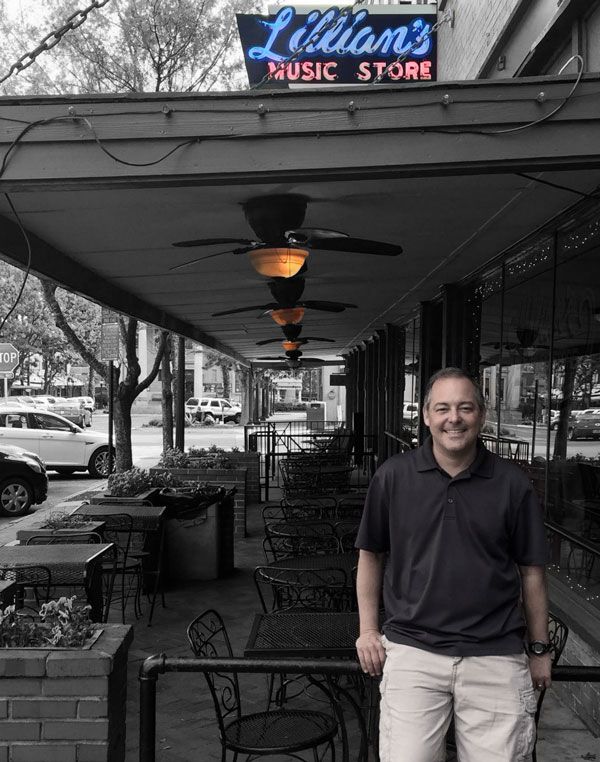Pass it On
Appeared in Creative Loafing, July 3, 2012
“A teacher affects eternity; he can never tell where his influence stops.” [Henry Adams]
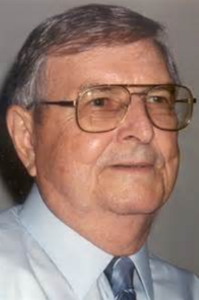
I never took a class from Buddy Davis, but he taught me a lot.
Years ago, when I was beginning my teaching career in Kentucky, I’d panic over what to do in class. I had most of these frantic talks with my colleague and friend, Harry Allen.
“I’ll tell you what Buddy would do,” he’d say, then launch into some tale about his days as a student with Horance “Buddy” Davis at the University of Florida.
Both Harry and I copped a lot of ideas from Buddy. Harry had kept every one of Buddy’s assignments. Though we couldn’t pull off Buddy’s classroom mannerisms — he was such a strong authority figure in class, something I couldn’t do effectively (or at least not with a straight face) — I took Harry at his word that the man was a brilliant teacher of writing.

And so much of teaching is borrowing from your teachers and the teachers you hear about, as you pass down the ancient craft and wisdom. I appreciated everything Harry told me about Old Buddy, but I never figured I’d meet the guy.
And then I did. After a long and circuitous path through other universities, I ended up teaching at the University of Florida, replacing — the word is used loosely here — Buddy Davis, who had just retired. Nobody replaced Buddy Davis.
But I was proud to finally get to know him and to thank him, and to be friends with him the last 20 years of his life. Anyone who took a class with him was touched forever. (And not always in a Mr. Chips kind of way. He was known for locking tardy students out of classrooms and making others wear a makeshift crown of thorns.)
I bring up all of this because Jay Atkinson has just written a new book about his Florida education.
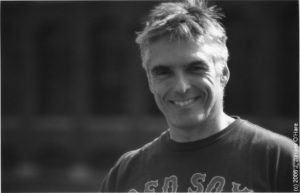
The title is misleading. Memoirs of a Rugby Playing Man (St. Martin, $26.95) isn’t just about blood sport. It’s about how Atkinson, a New England transplant, came to the University of Florida for graduate school, and learned about writing from Harry Crews and learned about rugby from P.J. Van Blokland.
[Full disclosure: Van Blockland and I were football-season drinking buddies for 20 years at the University of Florida. How I miss his disdain for ‘American Football.’ As long as we’re disclosing stuff, I should point out that I teach with Jay Atkinson at Boston University.]
Both professors played a huge part in Atkinson’s education, and though he was already extremely conversant with both rugby and writing before setting foot in the Sunshine State, he details all that he learned from Crews and Van Blokland, and the role that a teacher can play in a student’s life.
The memoir also does a wonderful job of portraying the changes occurring in Florida in the 1980s, and amounts to a trip into the Wayback Machine. Get out the polyester, the double tank tops, the big hair and the porn-star moustaches. We’re heading back to the Reagan Years.
Van Blokland recently retired from the university after years of teaching food and resource economics. But it’s what he taught on Norman Field that most concerned Atkinson — the rugby skills and strategy that Van Blokland brought across the pond from Great Britain.
We’ll get back to the rugby.
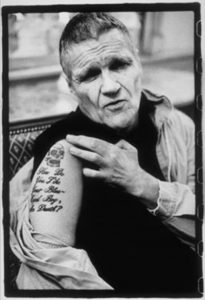
The heart of the book is about Harry Crews. He died earlier this year after many years of ill health. Perhaps his whole life was spent in ill health, from the time as a child in South Georgia when he fell into a boiling vat on a hog farm and burned off most of his skin.
Crews’s life was the quintessence of hard scrabble, and he wrote about it eloquently in A Childhood: The Biography of a Place. His bare-knuckles approach to writing infused his novels, including The Gospel Singer, The Knockout Artist and Car.
Crews taught creative writing at the university for a generation, and when freshly minted grad student Jay Atkinson showed up in a Crews class at the dawn of the 1980s, things didn’t get off to a good start. At first, Atkinson thought the scruffy drifter hanging around outside the classroom was a janitor. Inside the seminar room, he learned the drifter was the professor. After Crews delivered a meandering preamble to the class, Atkinson told him he hadn’t understood a word because of his swamp-and-turpentine accent. Would he mind repeating the rant, in normal English this time? Crews said he didn’t much like Atkinson’s New England honk, and suggested they step outside to settle their differences like real men.
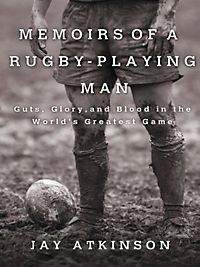
Thus began a beautiful friendship, of course.
Today, deep into his 50s, Atkinson is respected for both nonfiction and fiction. As a native of Lowell, Massachusetts, he felt duty-bound to retrace the journey of that town’s most famous son, Jack Kerouac. Paradise Road follows the road taken by Sal Paradise, the protagonist and Kerouac’s On the Road stand-in. He’s also written about Boston’s organized crime in Legends of Winter Hill. He’s also done collections of fiction.
But finally, Atkinson has written a love story. It’s about teachers, it’s about rugby, it’s about the intensity of meaningful and lasting friendships.
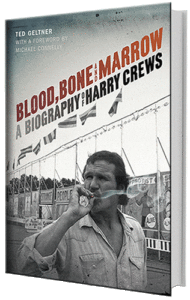
I’m about as athletic as a doorknob, but even second-hand, these stories of brotherhood on and off the field get the adrenalin flowing. Even those ignorant of rugby know that this sport goes hand-in-hand with the consumption of high-octane beer, the stuff with the color and consistency of crank-case oil. Play ’til you’re bloody, with a black eye and a loose tooth, then hoist a pint with your mates.
The book takes us into the van as the rugby club travels from game to game and bar to bar, criss-crossing Florida, playing games and raising hell. The writing is so vivid, you feel every bump in the road as you hunker down with your go-cup of beer on the way home from the game.
Atkinson learned well. Even as a graduate student, he ended up developing a special friendship with Crews, escorting him to uncomfortable undergraduate parties, both on the same mission — to find women. After leaving Florida, Atkinson and Crews maintained the friendship, and Crews became friends with Atkinson’s son.
Atkinson still plays rugby today, and he coaches youth teams. He teaches writing to college freshmen. He also writes books that explore what it means to be a man in the modern world.
Harry Crews may be dead and P.J. van Blokland may have retired, but they’re still teaching, because Jay Atkinson is a teacher.
Post Script: Ted Geltner has written an excellent biography of Harry Crews called Blood, Bone and Marrow. Click on the cover image above to order.
